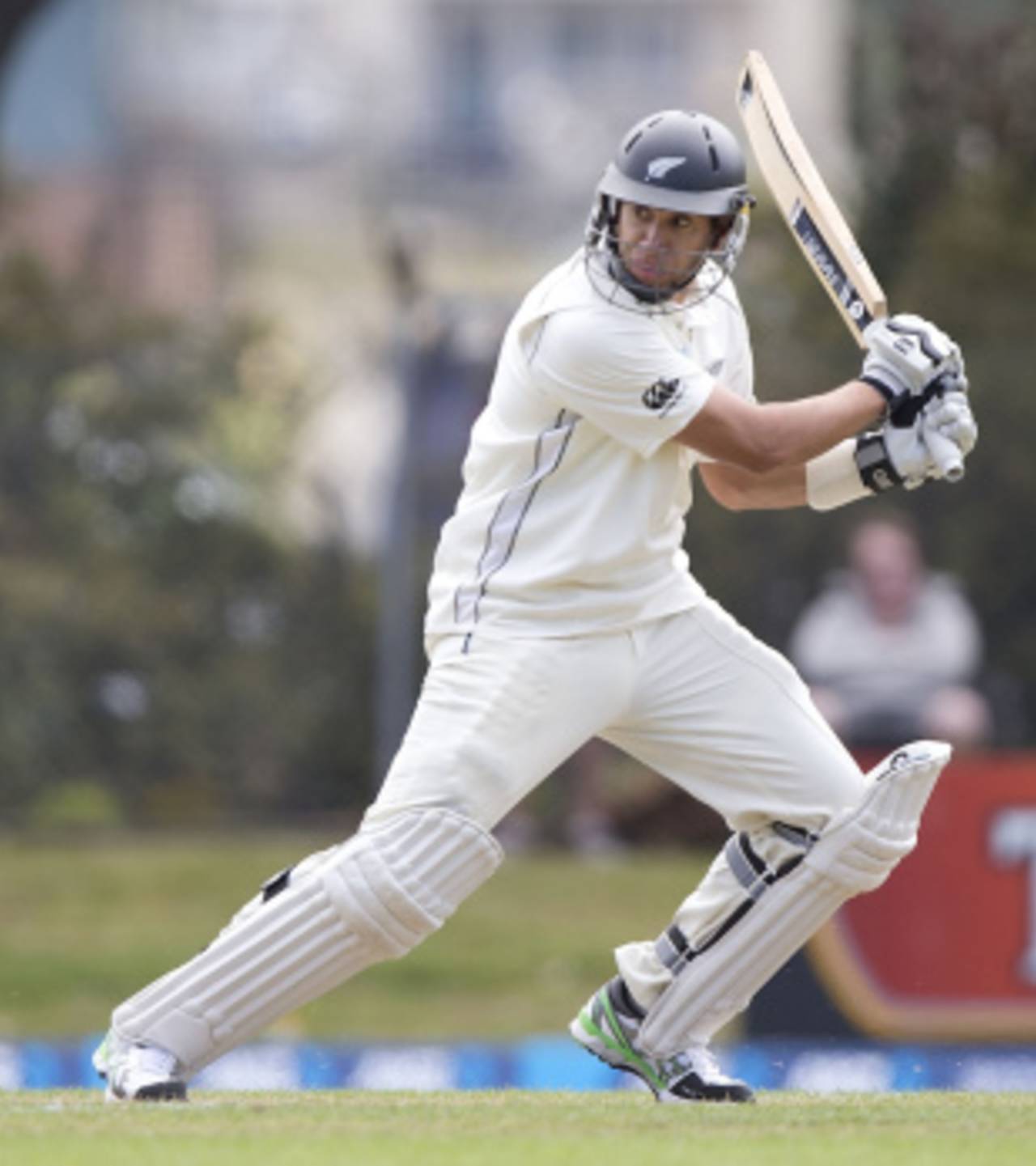New Zealand could barely have dreamt of a better start to their home season. Despite losing the toss, one where they too would have inserted the opposition, they hurtled along at four runs an over with their captain and former captain laying markers for the summer ahead with much-needed hundreds. Already they are in a position from which they should not lose and can push to register their first Test victory of the year.
West Indies were a gentle opposition in the opening forays, with the honourable exception of the wholehearted Tino Best whose early afternoon spell was the most impressive of the day. Their slow start was hardly unexpected, and though they pulled themselves together briefly either side of lunch - largely through Best and Shane Shillingford - New Zealand had been given a head start that they did not relinquish.
Ross Taylor and
Brendon McCullum consolidated in forceful fashion during the evening session, which brought 173 runs in 35 overs.
It was a day that ticked many boxes for New Zealand, from the start given by Hamish Rutherford and Peter Fulton (reminiscent of their
158-run stand against England in March) and then the way Taylor and McCullum ensured they did not waste that platform when the pair joined forces at 185 for 3 - a score from which New Zealand's innings could still have fallen away.
They were fed some rubbish as Darren Sammy, not for the first time in recent weeks, spread his field with little impact. Only Shillingford, in a commendable effort given the cloud over his action, gave him a semblance of control, although McCullum profited against him later, and New Zealand's batsmen knew they could just play the offspinner out and feed off the poor deliveries that regularly came their way.
The hundreds for Taylor and McCullum had been long awaited and were vital for different reasons. Taylor hadn't reached three figures since losing the captaincy last year, his batting having become studded with racy fifties that did not do justice to his talent or provide the ballast the middle order needed. His previous hundred was
in Colombo, which was both New Zealand's most recent Test victory and the last match for Taylor as captain, although the die had been cast before that win.
McCullum, meanwhile, had waited three years to score his seventh Test hundred. He had recently spoken about the "
dark thoughts" he experienced after returning early from the Bangladesh tour with a flare-up of his chronic back condition after a period where his runs dried up. Last week he played a club game in Dunedin for local side Albion where, by all reports, he looked horribly scratchy and troubled by his back. He was bowled by a New Zealand Under-19 seamer; the difference between that attack and today's may not be as vast as you would envisage.
Even two days out from this Test, during New Zealand's first practice day, McCullum had a horrid net session according to Taylor, who offered his captain some words of advice.
"The way Brendon was batting on Sunday, I think he was trying very hard in the nets and sometimes when you really want to do well you over-train and he was doing that," Taylor said. "His balance was all over the place. Obviously there were a couple of words from other people and I just said keep your balance. That was the only thing I was going through and his balance was beautiful. He played the strokes that he's famous for and he was back to the Brendon of old."
McCullum is a batsman who lives on his instincts and if there were any doubts when he walked in, they did not show. This was also an opportunity gift-wrapped for him: a solid position forged by the top order, a soft ball, a shallow bowling attack and a fast outfield. He regularly played in similar fashion against England earlier this year, but either fell in the team push for quick runs or was left with the lower order for company.
There was the occasional flex of the back, as there will be for the rest of his career - Taylor said his captain was "cooked" at the end of the day - but he was moving well enough to deposit Shillingford twice down the ground for six and pull Shannon Gabriel over midwicket for another. There was also the sight of two reverse sweeps, the second of which took him into the 90s.
Taylor, as so often, was fierce on the cut and strong on the drive. He also had injury concerns leading into the series - a
knee problem picked up during training after being rested from the Sri Lanka one-day tour - but for him, long considered the classiest batsman of this New Zealand generation and labelled as one of the country's best ever, it is about producing the volume of runs his talent demands. He will make far tougher hundreds than this one, although he admitted having to battle out of one-day mode for his first 20-30 runs, during which he gloved one over the slips from Best.
"My first initial reaction was to hit the ball," he said. "Obviously Test cricket, that's not what it's about. I was working through my head the right tempo to play and just slow myself down. I was battling and trying to hit every ball for four. It was nice to come through the other end and felt pretty good."
There will have been few positive emotions in the West Indies camp. They wasted a chance in helpful morning conditions although Taylor believed the pitch would develop into the usual comfortable batting surface seen here for Tests. New Zealand's cricket is not consistent enough for anyone to get too giddy, but already this match has the feeling of another lost cause for West Indies.
